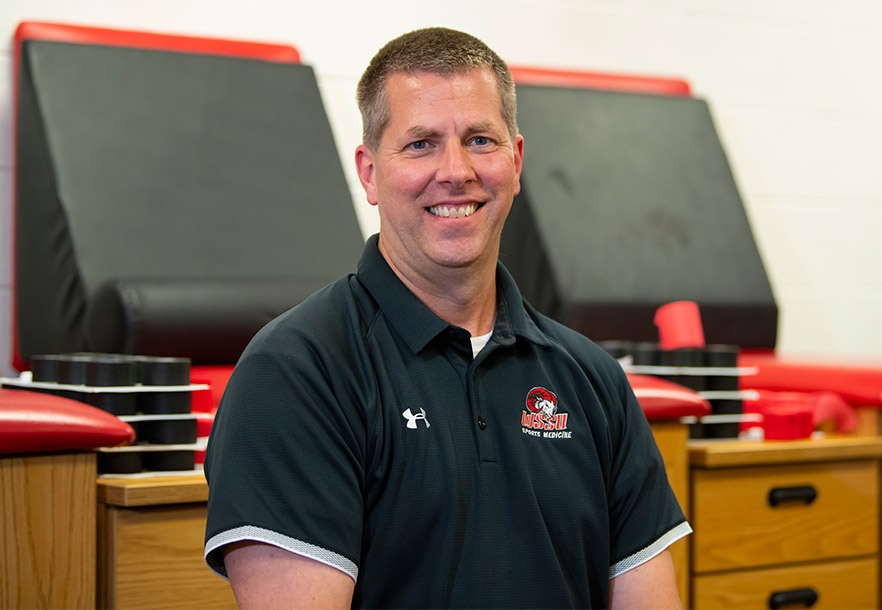8 Questions with … John Lavender, head athletic trainer

Get to know John Lavender, head athletic trainer in Winston-Salem State University’s (WSSU) Sport Medicine Department.
Lavender and his staff work to protect and promote the safety, health and well-being of every one of our student-athletes. Recently, the department received funding to continue participating in the largest-ever study of sport-related concussions.
WSSU is the only HBCU to participate in the concussion study, through the U.S. Department of Defense and the NCAA. WSSU partners with Wake Forest University and Wake Forest Baptist Medical Center on the grant.
Here are 8 questions with … John Lavender.
What do you think are the three biggest challenges student-athletes face?
Balancing academics and athletics; learning the difference between being hurt and injured; and prioritizing mental and physical well-being in light of pressure placed on athletics.
How would the people you work with describe you?
Ethical, competent, compassionate, fair, funny, approachable.
Why did you choose to pursue athletic training?
I was always interested in sports but wasn’t able to play as a youth. In order to be part of a team, I chose athletic training.
What is your favorite part about being an athletic trainer?
Seeing how I can take an athlete at their most vulnerable state (the injury) and help guide them physically and mentally through their treatment and rehabilitation process all the way back to the field of competition.
What are four things that people may not know about you?
- I had a brain tumor as a baby that precluded me from playing sports.
- I worked the 1996 Olympic Games in Atlanta and got to carry the Olympic torch along its route.
- I started the dance medicine program at UNC School of the Arts.
- I saved a young man’s life and was recognized with the award by the North Carolina Athletic Trainers Association in 2016.
What advice would you give students who are interested in a career as an athletic trainer?
Choose a major like Exercise Science for undergraduate studies. Volunteer to work as a student athletic trainer. Observe and learn everything you can by getting hands-on experience. Pursue getting your master’s degree.
As head athletic trainer, what is something you do more often than anything else?
Coordinate daily with coaches, administration, athletes, co-workers, and students. Administer medical/hospital claims for payment.
Why is it important that an HBCU like WSSU be a part of the national concussion study?
It’s important because concussions are a serious injury that does not discriminate. In order to advance concussion protocols, it is imperative to look at as many variables as possible to see how better to serve our student-athletes. It also shows that HBCUs are on the cutting edge of medical advancement.
Derika Reed, a 2019 WSSU sport management graduate from Newark, New Jersey, served as a spring semester intern for the Department of Athletics.
